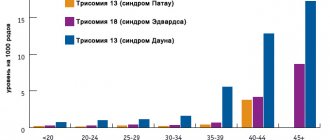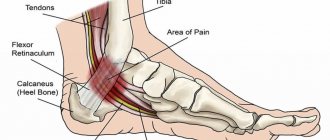To get rid of excess weight and not gain weight, you need to control the volume of portions, and even better, create a menu taking into account the number of calories, as well as the ratio of proteins, fats and carbohydrates. However, proper nutrition, which eliminates uncontrolled overeating, is not easy to adhere to. For some people, this is simply impossible, since immediately after a full meal they feel hungry. To lose weight without the risk of binge eating and without harm to your health, you need to enlist the support of specialists. The Doctor Bormental clinic uses its own patented method of losing weight and maintaining results, with the help of which more than half a million people have already lost weight. Read more about her here.
Eating habits
The most common type of eating disorder is uncontrolled consumption of food for pleasure. That is, people eat not because they are hungry, but because they are used to just constantly chewing something. But there are bad eating habits that lead to an uncomfortable state of constantly feeling hungry. Let's take a closer look at them.
Dehydration
Some people confuse the feeling of hunger and thirst. This is a rather dangerous, but easily correctable eating disorder. The thing is that the hypothalamus signals about a lack of food and a lack of water. If for many years a person paid great attention to food, while ignoring the drinking regime, the states of hunger and thirst could become confused in his system of self-awareness.
In this version, when a person needs a drink, he begins to eat. As a result, water deficiency becomes even greater and signs of dehydration appear. To get rid of this condition, you just need to instill in yourself the habit of drinking a lot of water (at least 2 liters per day).
Poor nutrition
For full functioning, the body requires fats, proteins, and carbohydrates. If a person’s diet is monotonous and does not include one or another necessary component, the hypothalamus signals that the food received is not enough. As a result, the person continues to eat, but the feeling of hunger still persists. A nutritionist will help you cope with this problem, creating a properly balanced menu and eliminating the risk of overeating.
Wrong nutrition schedule
Doctors recommend that everyone who has problems with eating behavior switch to fractional meals with a clearly defined meal schedule. With fractional meals, a person eats 5 or 6 times a day. An incorrect schedule is a complete lack of a schedule or eating with large time intervals between meals. In the first case, a person accustoms his stomach to the fact that food arrives at any time, regardless of whether the food received earlier has been digested. The result is that the body begins to demand food constantly.
In the case of large gaps between meals, the hormone ghrelin can be produced, which forces you to eat in reserve. A person sits down at the table, being very hungry, and then, when he starts eating, he simply cannot stop.
Consequences
Many people consider bulimia nervosa to be a minor pathology that can be dealt with on their own without the help of a specialist. This misconception can lead to extremely undesirable results that will affect both psychological and physical levels.
The results of an advanced form of the disease may include the following phenomena:
- depression, a depressed state caused by feelings of shame and guilt for one’s behavior;
- there is a sharp change in life values and priorities;
- Communication with other people deteriorates.
The physical consequences manifest themselves as follows:
- a violation of the body's water balance, which occurs with regular use of laxatives or provoked vomiting. These actions also lead to a deficiency of microelements necessary for humans - potassium, calcium, sodium chlorine, etc. As a result, a person begins to feel weak, shortness of breath appears, an accelerated heartbeat (tachycardia), and kidney function is disrupted;
- the general hormonal background changes, natural metabolic processes are disrupted;
- high probability of gastritis, stomach ulcers;
- The mucous membrane of the mouth becomes inflamed, inflammation and ulcers appear in its cavity. Tooth enamel, which is regularly exposed to vomit with an aggressive, acidic environment, is gradually destroyed, which leads to tooth loss;
- the condition of the skin, hair, and nails gradually deteriorates;
- weakening of muscle and bone tissue, which occurs due to a gradual change in the biological rhythms of the body.
Lifestyle
Eating disorders are directly related to a person’s lifestyle. It is worth talking separately about the various options for everyday behavior that lead to a state of insatiable appetite.
Improper sleep patterns
If a person sleeps insufficient hours, leads a nocturnal lifestyle, or has a “floating” daily routine, his hormonal levels are sooner or later disrupted. This leads to a variety of negative consequences, such as depression, chronic fatigue, increased irritability, and a decrease or increase in appetite.
Taking medications
Some types of medications can make you feel hungry. These include hormonal agents, antidepressants, glucocorticosteroids, strong antibiotics, and contraceptives. If the desire to constantly eat began abruptly and simultaneously with the start of taking medication, you should consult a doctor and change the drug.
Diets
Frequent exhausting diets, when a person eats, lead to the body turning on the energy storage mechanism. It constantly requires food in order to store reserves in the form of fat in case a nutritional deficiency arises again. Therefore, people who incorrectly organize the process of losing weight, instead of the desired weight loss, get an uncontrollable appetite, as a result, even more extra pounds.
Stress
When a person is under stress, he may begin to consume food in quantities that are excessive for himself. At the same time, they say that a person eats away his problems. This is especially true for women. The fact is that during stress, depression, and nervous breakdowns, the body produces cartisol. The brain perceives it as a negative signal that needs to be neutralized by serotonin and erdonphins, which have opposite effects on the emotional state. To this end, the hypothalamus signals hunger so that a person begins to eat and enjoy food.
Bad habits
Smoking, drinking alcohol and drugs leads to a decrease in the content of useful substances. To compensate for their deficiency, the body requires additional food. Increased appetite is caused by hormonal imbalance, which often occurs with prolonged abuse of alcohol or drugs.
Diseases
Increased appetite occurs in some diseases. For example, people with type 2 diabetes experience hunger more than others because they metabolize glucose too quickly. It is converted into glycogen and fat, resulting in the need to replenish its reserves from food.
Recently, doctors often talk about such a disease as bulimia. Unreasonable bouts of gluttony, when you want to eat something almost around the clock, and complete ignorance of problems with excess weight were previously considered simply problems of a person’s character. This condition is now called an eating disorder that requires specialized care.
Increased appetite, along with weakness and nausea, may indicate the presence of a very dangerous disease called hypoglycemia. It is characterized by a strong decrease in blood glucose levels. This disease requires urgent medical attention. In the worst case scenario, the patient may fall into a coma.
Problems with the thyroid gland can also cause constant appetite. The gland is responsible for regulating metabolism and secreting hormones. With hyperthyroidism, hyperfunction of the thyroid gland occurs, which results in accelerated metabolism, low body weight, and a constant feeling of hunger.
There are other, less common diseases that lead to overeating. These include hypergraphia (impaired blood circulation in the brain), acoria (impaired functioning of the hypothalamus), and polyphagia (a tradition that has become an irresistible habit). In the case of polygapia, the situation can reach the point of severe obesity and is often treated by surgical reduction of the stomach.
Types of violations
Hormonal disorders are divided into male and female. For guys, the formation of hormonal levels occurs closer to the age of 19, when puberty ends. By the age of 40, hormone levels decrease and this happens against the background of a toxic effect on the body, a tight work schedule, overwork and genital tract infections.
Women typically develop premenstrual syndrome a week before menstruation. During this period, swelling of the mammary glands, cramps and headaches may bother you. The hormone estradiol, which is the most active estrogen, contributes to the appearance of these signs. Another type of female disorder is amenorrhea and menopause. Amenorrhea can be primary or secondary. It usually appears due to disease of the ovaries, uterus or thyroid gland. Menopause appears closer to 50 years of age and indicates a decrease in hormone levels or disorders of the reproductive system.
Causes of constant hunger in women
In women, an increased need for food can be triggered by the following factors:
- taking incorrectly selected contraceptive drugs;
- pregnancy;
- PMS.
Many contraceptives are hormonal. They can disrupt hormonal levels, resulting in increased appetite. Typically, a side effect such as excessive appetite appears when a woman starts taking a new drug. Later the condition returns to normal. If, after long-term use, the constant desire to eat does not go away, you need to consult a doctor, get tested for hormones and replace the drug.
Pregnant women often say: “I’m eating for two.” This is true. A developing fetus needs “building material” in the form of useful substances, and it can only get them from the food consumed by the mother.
During pregnancy, the need for food increases for several reasons. Firstly, the body requires more nutrients. Secondly, hormonal changes occur. Thirdly, with toxicosis, there is a desire to eat salty, sweet, sour, etc. It is important to follow a balanced diet, agreed with your doctor.
PMS usually manifests itself as mood swings caused by hormonal surges. But sometimes there is a strong appetite. There is no need to fight it, since it only lasts 2-3 days. If you gain extra pounds during these days, after stabilizing your condition, you can spend one fasting day on low-calorie foods.
Therapy for kinorexia
In order for a doctor to be able to make a final diagnosis of “bulimia nervosa,” the following signs must be present in a comprehensive manner:
- attacks of painful gluttony occur regularly, from 2 times a week for more than 3 months;
- the patient feels a strong craving for food, which can be compared to anxiety;
- fear of obesity, constant dissatisfaction with the state of one’s body;
- using all possible methods to help prevent excess weight.
Experts unanimously state that treatment for bulimia should have a comprehensive approach and be carried out exclusively with the participation of a doctor. The general treatment plan includes the following types of therapy:
- psychotherapy;
- psychocorrection;
- pharmacotherapy.
As a rule, treatment is carried out in an outpatient (home) setting with mandatory regular visits to the doctor. In more complex cases, when the pathology of eating behavior is complicated by concomitant nervous disorders, the doctor recommends inpatient treatment. This measure is especially necessary to relieve the patient’s acute condition.
In order to form a stable remission, in particular when using psychopharmacotherapy, it is recommended to conduct monthly examinations and consultations with a treating specialist.
How to get rid of increased appetite
Frequent and uncontrolled food consumption will sooner or later lead to excess weight with all the accompanying problems. A specialist will help correct the situation. Patients are usually given the following advice:
- undergo a medical examination;
- give up diets, even light ones, and instead switch to a balanced diet, counting nutrients and calories;
- avoid stressful situations;
- analyze medications taken on a regular basis to see if they may cause increased feelings of hunger;
- adjust sleep patterns;
- Make it a habit to have a full breakfast of healthy, nutritious foods;
- create a meal schedule and stick to it daily;
- Calculate with a nutritionist your ideal ratio of proteins, fats, carbohydrates;
- remove unnatural, fried, fatty foods from the diet;
- normalize your drinking regime, drink 2 liters of water daily;
- remove foods that stimulate appetite from the diet - apples, sour juices, sauces, alcohol;
- reduce the consumption of high-calorie foods - boiled potatoes and mashed potatoes, boiled or fried mushrooms, bananas, baked goods, dried fruits, nuts;
- Have a light snack in the evening before bed;
- You should not eat store-bought confectionery or drink carbonated drinks (they are not healthy, high in calories, and stimulate appetite)











